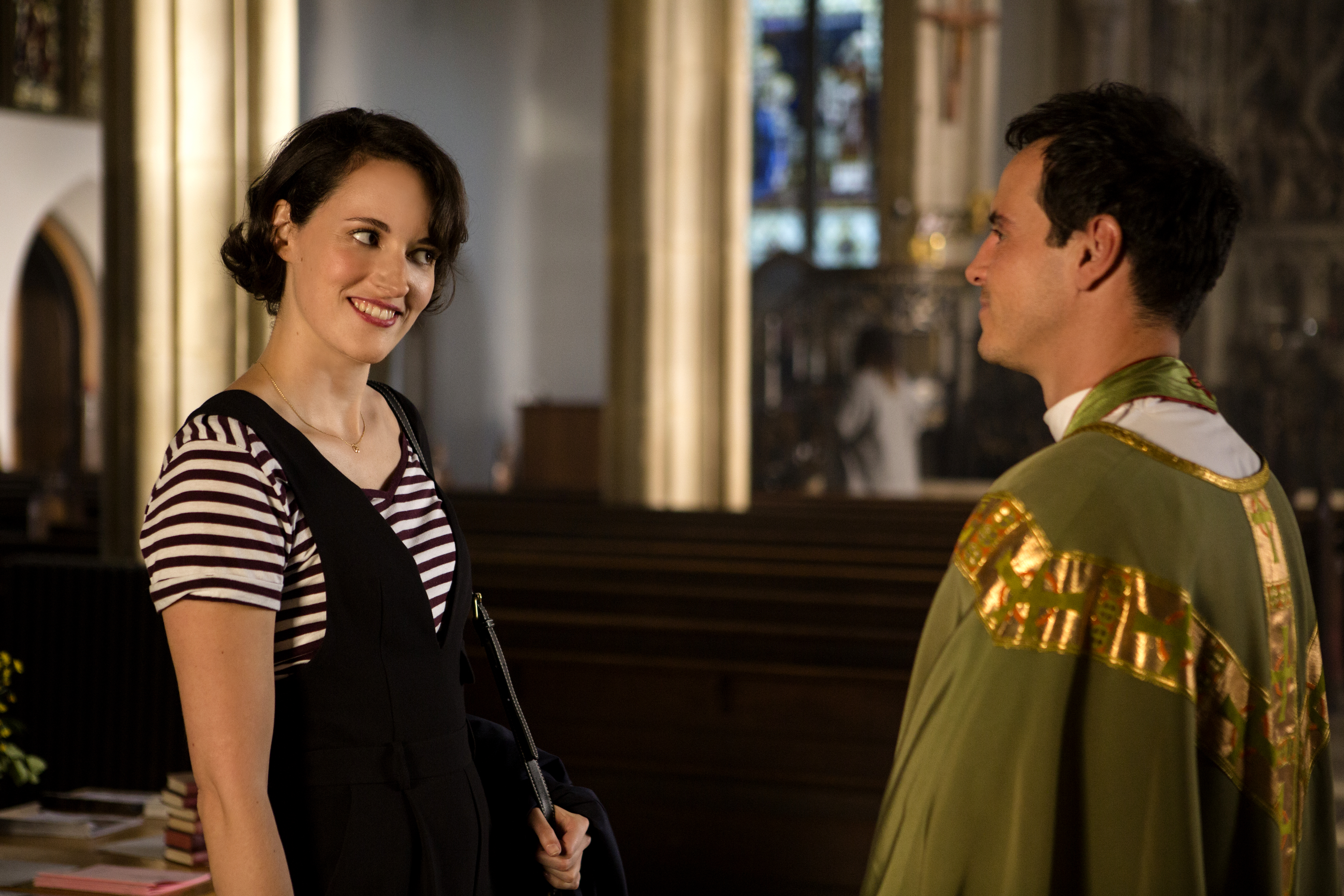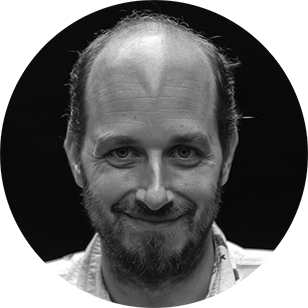What Fleabag's 'hot priest' storyline gets so right about sex and love
A perfect show somehow got even better with its (surprisingly hopeful) second season


A free daily email with the biggest news stories of the day – and the best features from TheWeek.com
You are now subscribed
Your newsletter sign-up was successful
It was hard to imagine, at the end of Fleabag's first season, how there even could be a second season.
Built around some of the most comedically devastating fourth-wall breaking this side of The Office's Jim Halpert, Phoebe Waller-Bridge's "Fleabag" played a woman-as-trainwreck stereotype, a shameless relationship-killer whose life symphonically spiraled out of control, punctuated by self-destructive sex and burning bridges. And yet she did it so charmingly, so hilariously, that it could be easy to laugh and overlook how wounded and grieving — and ashamed — she actually was. The more she self-destructed, the more indestructible she seemed. And this, as it would turn out, was exactly the point of constantly mugging to the camera, of all the joking asides, smirks, and wry commentary she tossed off as we watched her barrel through her life: to confess everything except the thing that mattered, the one thing she needed to hide.
At the climax of the first season, we learned that we, the audience, had not only become the protagonist's replacement for her dead friend, Boo — as confidant, accomplice, and bosom companion — but that had she had turned to us, the camera, because it was the only friend who wouldn't judge her, who didn't know her truly shameful secret: that Boo killed herself after Fleabag slept with her boyfriend, but without knowing her closest friend had betrayed her. When that secret breaks — when the audience learns who she really is — Fleabag abruptly avoids the gaze of the camera, running and hiding from it for the first time.
The Week
Escape your echo chamber. Get the facts behind the news, plus analysis from multiple perspectives.

Sign up for The Week's Free Newsletters
From our morning news briefing to a weekly Good News Newsletter, get the best of The Week delivered directly to your inbox.
From our morning news briefing to a weekly Good News Newsletter, get the best of The Week delivered directly to your inbox.
This revelation is devastating. After snatched moments of intimacy with her sister and her father, both choose their truly terrible romantic partners over her, leaving her with the failing cafe she started with Boo, alone, bereft of the intimacy with the camera, and contemplating suicide. But then, out of nowhere, grace: a humorless loan officer who she had inadvertently sexually-harassed in the first episode — and who called her a "slut" — arrives at her café with financial redemption, and makes her laugh. "Everyone makes mistakes," he says, simply.
It is gorgeous, sad, and complete. What else — other than laughing at the absurdity of it all — is there to say? And since the first season was a relatively faithful adaptation of the stage show of the same name — debuted at the 2013 Edinburgh Fringe Festival, but recently revived unchanged — it was difficult to imagine where Fleabag could possibly go next.
I doubt anyone predicted that the answer would be "a hot priest," but in retrospect, it's perfect. Shame, confession, grace, redemption ... however resolutely atheist and secular she is — and she really is — Fleabag is about disentangling the right kind of shame from the wrong kinds. And although most of the fan commentary on the "Hot Priest" has framed the character in the same titillating terms as the name that general consensus has given him — "The Hot Priest In 'Fleabag' Makes Me Weak at the Knees" — the underlying thrust (sorry) of the second season is a much deeper and more philosophical question than the will they, won't they of the typical rom-com. In the absence of religious morality — in a secular society where we are basically free to do whatever we want — where does one find forgiveness for one's sins?
Her sin is not sex, I want to hasten to add. This has been lost on some critics, and when the original one-woman show debuted in 2013, a surprising number of reviews managed to praise the performance while sounding surprisingly moralistic, calling her "a monster, of sorts," and the play an indictment of "the effects of porn on 21st-century women," "a grown-up girl's cautionary tale," and a "confused picture of contemporary western womanhood." But both Waller-Bridges and Fleabag insist that there's nothing wrong with sex, per se, and when the second season opens with her having embarked on a project of celibacy, this solves precisely none of her problems. Something else is going on.
A free daily email with the biggest news stories of the day – and the best features from TheWeek.com
In a sense, Fleabag does need the forgiveness that she was denied the opportunity to ask for in the first season. Sleeping with your best friend's boyfriend is a horrific thing to do, as were the consequences; since Boo died without knowing who it was that betrayed her, how could Fleabag ever be forgiven for what she did? But a strange thing about the second season is that it isn't really about that betrayal. Perhaps the first season served as a substitute confession — with the camera taking the place of the absent Boo — but the second season picks up with an inspired inversion of the absolute flaming fiasco of the season one ending: the first episode begins with a family dinner in which everyone has silently, Britishly, agreed to pretend that everything is fine.
It isn't. On the surface, Fleabag does seem to be fine: her café is doing well and her presence at the family dinner is so worryingly low-key that it pushes her family off-balance (it's a lovely touch that her family needs her to be a hot mess, and it confuses and upsets them when she isn't). But the truth is somehow worse: when her father asks her why she isn't "being naughty," she tells him, simply "Because it doesn't matter." It's a tribute to Waller-Bridge's writing, and to the depth of the characters she's created, that no explanation is required for this devastating four-word revelation. She hasn't found acceptance or forgiveness, and her celibacy is a sign of resignation, not virtue. She's simply given up trying. In the gap between the first season and this one — 371 days, 19 hours, and 26 minutes later, a title card tells us — she accepted her family's judgment, essentially, that she is unlovable.
Enter: The Hot Priest.
Perhaps because she's never been religious, never believed in God, and never respected the authority that he represents, Fleabag doesn't see him coming either. He's an enigma to her, as is his faith; when she begins to feel an attraction to him, she has to google basic questions like "what happens to a priest who has sex?" (and makes rookie mistakes when she crashes his Mass). But though the season begins with the declaration that "this is a love story" — and she does eventually (spoiler alert) have sex with the Hot Priest — it's his insistence that she is redeemable and his desire to help her that knocks her off her feet (and which she fights to resist).
Though her chemistry with the otherwise nameless Hot Priest, played by Andrew Scott, is heavy and smoldering, it's worth noting that her first moment of attraction is when he tells her to "f*** off"; in season one, she used sex with unavailable, desperate, or mistreated men to prove to herself that she was not yet beyond acceptance but in season two, she tries to use celibacy (her own, and that of a winsome priest) to prove to herself that she really is. What's more, a priest can offer her something that a world where everything is allowed — and where nothing can therefore be wrong — cannot. How can a person find help when therapists — as her disastrous counseling session demonstrates — can only tell you that whatever you've already decided to do is what you will do? How can they help you when that inevitability has led you to do the wrong things?
What she wants, it turns out, is not to "f*** a priest" but to be told what to do. Having lost all confidence in her own judgment, her own instincts, and her own feelings — having decided that what she needs is for someone else to take over decision-making for her life — she is increasingly fascinated by this man of the cloth who seems to be exactly what she wants to be: a funny, profane train-wreck, wearing great dresses, who lives a mortified and celibate life of subjection (and is inexplicably plagued by predatory foxes).
This instinct is wrong, it turns out, because it's still the instinct to give up on herself. Love — as she told the therapist — "didn't bring anything good," but as the Hot Priest's absurdly effective and affecting "love is awful" wedding sermon emphasizes, giving up on it was the wrong conclusion. "It's painful. It's frightening. It makes you judge yourself, doubt yourself, distance yourself from the other people in your life," he says. "No wonder it's something we don't want to do on our own." Love isn't easy or something that feels right or has obvious places to go, he insists; love is, simply, hope. It's a sermon that somehow manages not to be the usual set of clichés, because we've watched these characters live it, and watched them come out of the other side: she fell for a priest because the idea of him seemed like the promise of sexual rejection and the annulment of her freedom; instead, he gave himself to her, accepted her choice, and allows her to turn his life upside down.
Except that ... he's fine. Having sex doesn't ruin his life, it turns out, just as it hasn't ruined hers. In fact, the revelation is that sex has changed nothing, which might be Waller-Bridge's most radically hopeful suggestion: after their trainwreck of a relationship, the Hot Priest goes back to the church, and she goes back to loving her family and being loved by them. No mistake you can make can change what matters; whatever you've done, it will pass.
If the first season was about honestly coming to terms with the damage sex can do, season two is about accepting what comes after confession, about the hard work of loving, even knowing the damage that love has brought and will bring again. What's difficult is not knowing what to do, but finding the strength to get on with it and do it (and the hope to try). In other words, love might not be an airport chase scene; it might be helping your sister up off her knees after she's begged her husband to leave her for good. Or your dad up off his when he's hiding from his wedding.
It's a good homily. "It's quite hard to come up with something original to say about love," as the Hot Priest puts it, but Waller-Bridges has had a good go. And then, having done it, the play is done. She waves goodbye to the camera and walks off into the night. She doesn't need us anymore; she has something better.
Aaron Bady is a founding editor at Popula. He was an editor at The New Inquiry and his writing has appeared in The New Yorker, The New Republic, The Nation, Pacific Standard, The Los Angeles Review of Books, and elsewhere. He lives in Oakland, California.
